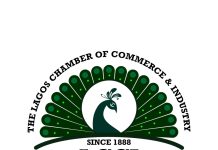There are allegations that the Central Bank of Nigeria (CBN) is printing money to bail out state governments but there are fears the inflation that will follow this practice may be difficult to manage.
In normal economic principle, when a government prints more money than its nation’s GDP can support, especially when such money is not tied to any productive activity, there will be too much money in circulation.
If the money supply in the country expands quickly, prices will rise then the rate of inflation increases. This makes goods more expensive for businesses and consumers and puts downward pressure on the economy.
This situation can lead to further depreciation of naira, which had been already devalued twice within one year.
This situation has raised the concerns of Nigerians who fear that the allegations of the Nigerian government printing money will worsen inflation, further depreciate the value of naira and destroy the economy.
The allegation of the government printing money started when the Edo State Governor, Mr. Godwin Obaseki, last week, claimed that the federal government printed about N60 billion to augment the shortfall in the Federation Account Allocation Committee (FAAC) shared among state governments.
READ ALSO: SERAP Urges Buhari To Probe Missing N106 billion in 149 MDAs
During the Edo State transition committee stakeholders’ engagement, Obaseki warned the government about the consequences of the country’s constant dependence on crude oil as a major revenue source.
However, the CBN Governor, Godwin Emefiele, while speaking during a facility tour of the Dangote Integrated Sugar complex in Nasarawa State, expressed dismay over attempts to distort the concept of printing of money.
He explained that the concept of printing of money had to do with lending money.
He said, “It’s very inappropriate for people to just give colouration to printing money as if it’s some foreign word coming from the sky.”
“That’s our job, to print. It’s about lending money and so there’s no need putting the controversy about printing money as if we are going into the factory printing the naira and start distributing on the streets.”
He said since the state governments had resorted to indicting the federal government of assisting them with bailout loans to meet their financial obligations during the 2015/2016 fiscal crisis, they must repay the debts.
Fears Of Hyperinflation
Speaking on the issue, a Professor of Economics at the Olabisi Onabanjo University Ago-Iwoye, Ogun, Sheriffdeen Tella, expressed concern that the practice of printing money, especially when huge amounts are involved, would lead to hyperinflation.
Hyperinflation is an extreme type of inflation where price increases are rapid and out of control by about 50 percent in a month.
Tella argued that there were more acceptable means for the government to fund the budget deficit than printing money.
According to him, oil revenue is still enough for the government to meet its financial obligations.
Tella stated that printing of money was an indication of poor financial control and management.
“The fact is that it is a way to borrow money to finance deficit budgeting. It is always a last resort which means that if the government cannot get money from internal sources it can ask the central bank to print money to finance the deficit,” Tella said.
READ ALSO: GTB, Zenith, 8 Other Banks Fined N2.5bn By CBN, SEC For Market Infractions
“It is a very bad way of financing deficit because it is very inflationary unlike other means in the sense that there is no production to back it up. It can cause hyperinflation depending on the amount of money involved and can depreciate the exchange rate further.”
Tella added, “It is important that the government should avoid that unless it is a serious problem. I don’t think we have reached that level unless we are not taking control of our finances in Nigeria.
“We are still earning money from oil and that can still be monetized. Since we are still selling oil, I don’t think the government should go into that.”
Nigeria’s Rising Inflation
Nigeria’s headline inflation increased sharply to 18.17 percent in March for the 19th consecutive month since August 2019.
The year-on-year food inflation increased sharply by 1.16 percent to 22.95 percent while the monthly subindex inched up by 0.01 percent to 1.90 percent driven by increase in prices of bread and cereals, potatoes, yam and other tubers, meat, vegetable, fish, oils and fats and fruits.
There are doubts that Nigeria’s inflation rate will ever return to pre-pandemic levels despite policies introduced by the financial regulators to manage some of the underlying causes responsible for the steady, month-on-month climb in inflation rates.
The Director General of Manufacturers association of Nigeria (MAN), Segun Ajayi-Kadir, worried that inflation kept rising even though the country was no longer in recession.
He said, “The news of rising inflation in a country that is only recovering from recession is worrisome. It is more so for the manufacturing sector that remained in recession, even after the technical exit of the country’s economy. As you are probably aware, the manufacturing sector posted a growth rate of -1.51 percent in the Q4 2020 from -1.52 percent in Q3 of the same year.
“The 18.17 percent inflation rate is not healthy for the well-being of the people and the growth aspiration of the economy. It should therefore be properly managed before it spirals out of control.”
He lamented that the current inflationary condition in Nigeria was adversely affecting the profitability of the manufacturing sector and partly responsible the low-export penetration of goods manufactured.













